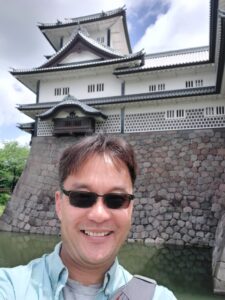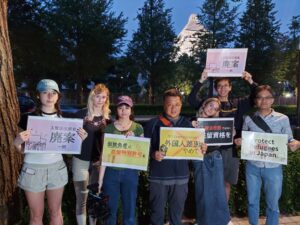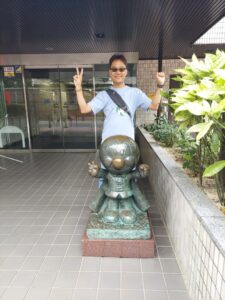Written by Mia Miller and Taku Suzuki
Here at Denison, our faculty have a wide range of lived experiences and perspectives. We’d love to highlight this by introducing our new series of International Faculty features!
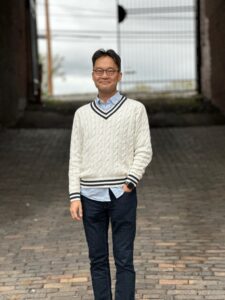 Meet Taku Suzuki. Dr. Suzuki is a Professor of International Studies, East Asian Studies and Global Health. He earned a B.A. in International Studies from Meiji Gakuin University in Yokohama, Japan, and a M.A. and a Ph.D. in Sociocultural Anthropology from the University of Minnesota. When asked what he’d like to share with students, this is what he had to say:
Meet Taku Suzuki. Dr. Suzuki is a Professor of International Studies, East Asian Studies and Global Health. He earned a B.A. in International Studies from Meiji Gakuin University in Yokohama, Japan, and a M.A. and a Ph.D. in Sociocultural Anthropology from the University of Minnesota. When asked what he’d like to share with students, this is what he had to say: 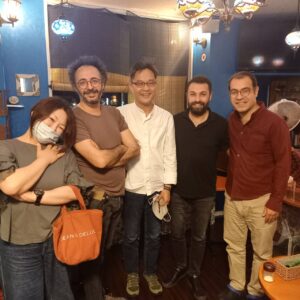
My ethnographic fieldwork in 2021-22 in Japan during which I worked with many Turkish Kurd asylum seekers. I am with a community leader and Japan’s only Kurdish restaurant owner, along with an Iraqi Kurd musician, Turkish journalist, and a Japanese supporter of the Kurdish community in Saitama Prefecture.
As an anthropologist, I conducted ethnographic field research in Bolivia, Okinawa/Japan, and the Western Pacific (Mariana Islands), as well as the United States. As challenging as it is to prepare and execute the research projects, and publish the articles and books based on the findings, the ethnographic research has given me an “excuse” to meet and interview people (such as Okinawan-Bolivian farmers in eastern Bolivia, Chamorro war survivors in Tinian Island, Turkish Kurd asylum seekers in Kawaguchi near Tokyo, or Bhutanese refugees in Columbus, Ohio), whom I would have never had a chance to encounter otherwise. I cherish all the relationships I have built with these research experiences.
- Visiting Kanazawa Castle.
- My trip to Japan this May-June for ASIANetwork Student-Faculty Fellowship with three Denison students, a Kenyon College faculty member, and three Kenyon students. We were at a protest rally in front of the National Diet building against the immigration bill that would further restrict asylum seekers’ rights.
- Posing with the Anpanman statue.

